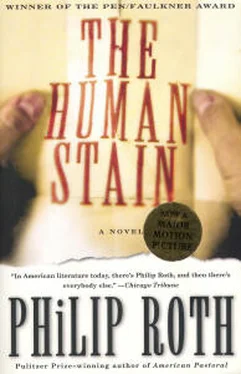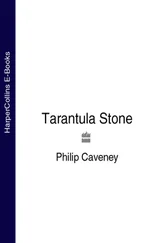Mia, as in modern Greek, is the indefinite article ‘a’;
kouri, or girl, evolves in modern Greek into
kori, meaning daughter. Now, Agamemnon much prefers this girl to his wife, Clytemnestra. ‘Clytemnestra is not as good as she is,’ he says, ‘neither in face nor in figure.’ That puts directly enough, does it not, why he doesn't want to give her up? When Achilles demands that Agamemnon return the girl to her father in order to assuage Apollo, the god who is murderously angry about the circumstances surrounding her abduction, Agamemnon refuses: he'll agree only if Achilles gives him
his girl in exchange. Thus reigniting Achilles. Adrenal Achilles: the most highly flammable of explosive wildmen any writer has ever enjoyed portraying; especially where his prestige and his appetite are concerned, the most hypersensitive killing machine in the history of warfare. Celebrated Achilles: alienated and estranged by a slight to his honor. Great heroic Achilles, who, through the strength of his rage at an insult — the insult of not getting the girl — isolates himself, positions himself defiantly outside the very society whose glorious protector he is and whose need of him is enormous. A quarrel, then, a brutal quarrel over a young girl and her young body and the delights of sexual rapacity: there, for better or worse, in this offense against the phallic entitlement, the phallic
dignity, of a powerhouse of a warrior prince, is how the great imaginative literature of Europe begins, and that is why, close to three thousand years later, we are going to begin there today...”
Coleman was one of a handful of Jews on the Athena faculty when he was hired and perhaps among the first of the Jews permitted to teach in a classics department anywhere in America; a few years earlier, Athena's solitary Jew had been E. I. Lonoff, the all-but-forgotten short story writer whom, back when I was myself a newly published apprentice in trouble and eagerly seeking the validation of a master, I had once paid a memorable visit to here. Through the eighties and into the nineties, Coleman was also the first and only Jew ever to serve at Athena as dean of faculty; then, in 1995, after retiring as dean in order to round out his career back in the classroom, he resumed teaching two of his courses under the aegis of the combined languages and literature program that had absorbed the Classics Department and that was run by Professor Delphine Roux. As dean, and with the full support of an ambitious new president, Coleman had taken an antiquated, backwater, Sleepy Hollowish college and, not without steamrolling, put an end to the place as a gentlemen's farm by aggressively encouraging the dead-wood among the faculty's old guard to seek early retirement, recruiting ambitious young assistant professors, and revolutionizing the curriculum. It's almost a certainty that had he retired, without incident, in his own good time, there would have been the festschrift, there would have been the institution of the Coleman Silk Lecture Series, there would have been a classical studies chair established in his name, and perhaps — given his importance to the twentieth-century revitalization of the place — the humanities building or even North Hall, the college's landmark, would have been renamed in his honor after his death. In the small academic world where he had lived the bulk of his life, he would have long ceased to be resented or controversial or even feared, and, instead, officially glorified forever.
It was about midway into his second semester back as a full-time professor that Coleman spoke the self-incriminating word that would cause him voluntarily to sever all ties to the college — the single self-incriminating word of the many millions spoken aloud in his years of teaching and administering at Athena, and the word that, as Coleman understood things, directly led to his wife's death.
The class consisted of fourteen students. Coleman had taken attendance at the beginning of the first several lectures so as to learn their names. As there were still two names that failed to elicit a response by the fifth week into the semester, Coleman, in the sixth week, opened the session by asking, “Does anyone know these people? Do they exist or are they spooks?”
Later that day he was astonished to be called in by his successor, the new dean of faculty, to address the charge of racism brought against him by the two missing students, who turned out to be black, and who, though absent, had quickly learned of the locution in which he'd publicly raised the question of their absence. Coleman told the dean, “I was referring to their possibly ectoplasmic character. Isn't that obvious? These two students had not attended a single class. That's all I knew about them. I was using the word in its customary and primary meaning: ‘spook’ as a specter or a ghost. I had no idea what color these two students might be. I had known perhaps fifty years ago but had wholly forgotten that ‘spooks’ is an invidious term sometimes applied to blacks. Otherwise, since I am totally meticulous regarding student sensibilities, I would never have used that word. Consider the context: Do they exist or are they spooks? The charge of racism is spurious. It is preposterous. My colleagues know it is preposterous and my students know it is preposterous. The issue, the only issue, is the nonattendance of these two students and their flagrant and inexcusable neglect of work. What's galling is that the charge is not just false — it is spectacularly false.” Having said altogether enough in his defense, considering the matter closed, he left for home.
Now, even ordinary deans, I am told, serving as they do in a no man's land between the faculty and the higher administration, invariably make enemies. They don't always grant the salary raises that are requested or the convenient parking places that are so coveted or the larger offices professors believe they are entitled to. Candidates for appointments or promotion, especially in weak departments, are routinely rejected. Departmental petitions for additional faculty positions and secretarial help are almost always turned down, as are requests for reduced teaching loads and for freedom from early morning classes. Funds for travel to academic conferences are regularly denied, et cetera, et cetera. But Coleman had been no ordinary dean, and who he got rid of and how he got rid of them, what he abolished and what he established, and how audaciously he performed his job into the teeth of tremendous resistance succeeded in more than merely slighting or offending a few odd ingrates and malcontents. Under the protection of Pierce Roberts, the handsome young hotshot president with all the hair who came in and appointed him to the deanship — and who told him, “Changes are going to be made, and anybody who's unhappy should just think about leaving or early retirement”—Coleman had overturned everything. When, eight years later, midway through Coleman's tenure, Roberts accepted a prestigious Big Ten presidency, it was on the strength of a reputation for all that had been achieved at Athena in record time — achieved, however, not by the glamorous president who was essentially a fund-raiser, who'd taken none of the hits and moved on from Athena heralded and unscathed, but by his determined dean of faculty.
In the very first month he was appointed dean, Coleman had invited every faculty member in for a talk, including several senior professors who were the scions of the old county families who'd founded and originally endowed the place and who themselves didn't really need the money but gladly accepted their salaries. Each of them was instructed beforehand to bring along his or her c.v., and if someone didn't bring it, because he or she was too grand, Coleman had it in front of him on his desk anyway. And for a full hour he kept them there, sometimes even longer, until, having so persuasively indicated that things at Athena had at long last changed, he had begun to make them sweat. Nor did he hesitate to open the interview by flipping through the c.v. and saying, “For the last eleven years, just what have you been doing?” And when they told him, as an overwhelming number of the faculty did, that they'd been publishing regularly in Athena Notes, when he'd heard one time too many about the philological, bibliographical, or archaeological scholarly oddment each of them annually culled from an ancient Ph.D. dissertation for “publication” in the mimeographed quarterly bound in gray cardboard that was cataloged nowhere on earth but in the college library, he was reputed to have dared to break the Athena civility code by saying, “In other words, you people recycle your own trash.” Not only did he then shut down Athena Notes by returning the tiny bequest to the donor — the father-in-law of the editor — but, to encourage early retirement, he forced the deadest of the deadwood out of the courses they'd been delivering by rote for the last twenty or thirty years and into freshman English and the history survey and the new freshman orientation program held during the hot last days of the summer. He eliminated the ill-named Scholar of the Year Prize and assigned the thousand dollars elsewhere. For the first time in the college's history, he made people apply formally, with a detailed project description, for paid sabbatical leave, which was more often than not denied. He got rid of the clubby faculty lunchroom, which boasted the most exquisite of the paneled oak interiors on the campus, converted it back into the honors seminar room it was intended to be, and made the faculty eat in the cafeteria with the students. He insisted on faculty meetings — never holding them had made the previous dean enormously popular. Coleman had attendance taken by the faculty secretary so that even the eminences with the three-hour-a-week schedules were forced onto the campus to show up. He found a provision in the college constitution that said there were to be no executive committees, and arguing that those stodgy impediments to serious change had grown up only by convention and tradition, he abolished them and ruled these faculty meetings by fiat, using each as an occasion to announce what he was going to do next that was sure to stir up even more resentment. Under his leadership, promotion became difficult — and this, perhaps, was the greatest shock of all: people were no longer promoted through rank automatically on the basis of being popular teachers, and they didn't get salary increases that weren't tied to merit. In short, he brought in competition, he made the place competitive, which, as an early enemy noted, “is what Jews do.” And whenever an angry ad hoc committee was formed to go and complain to Pierce Roberts, the president unfailingly backed Coleman.
Читать дальше












